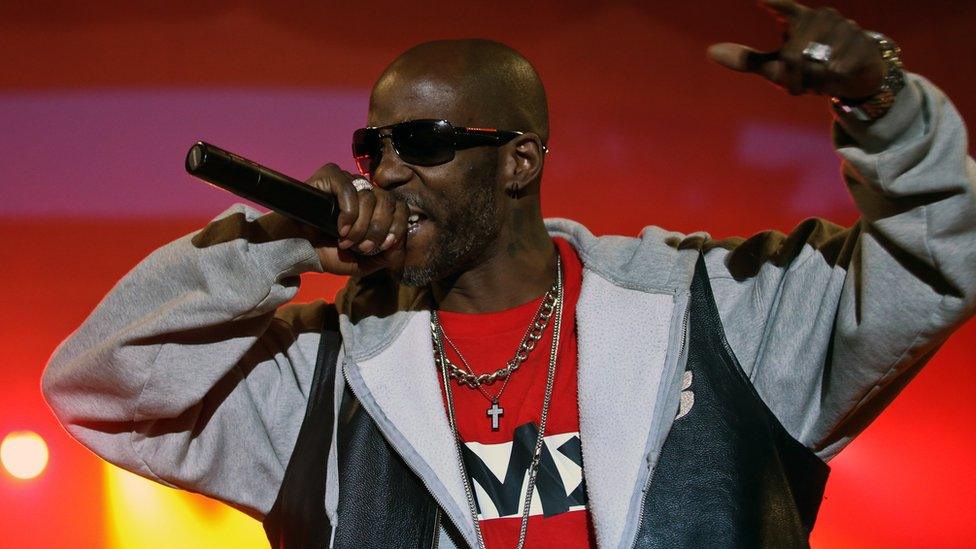Lee 'Scratch' Perry: Tributes paid to the 'true legend' of reggae
- Published
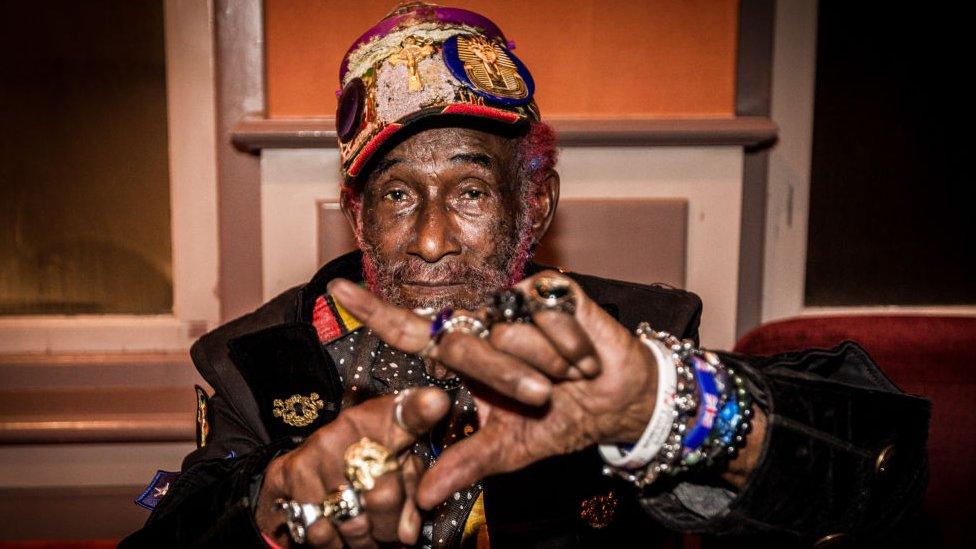
Perry is known for his pioneering work in dub
Tributes have been paid to the legendary Jamaican singer and music producer Lee "Scratch" Perry, who has died at the age of 85.
He died in hospital in Lucea, north-west Jamaica, local media reported.
Perry is known for his pioneering experiments in dub, which revolutionised not only reggae, but also hip hop, dance and other genres.
Jamaican Prime Minister Andrew Holness called him "unforgettable" and praised his "sterling contribution" to music.
The Beastie Boys, who first worked with Perry when he opened for them in Japan in 1996 before they joined forces on the track Dr Lee PhD as party of 1998's Hello Nasty album, hailed the musician's "pioneering spirit".
"We are truly grateful to have been inspired by and collaborated with this true legend," the group said in a tweet, external.
Flying Lotus, whose real name is Steven Ellison, wrote on Twitter, external: "Blessed journey into the infinite. RIP Lee 'Scratch' Perry."
Rapper Lupe Fiasco also remembered Perry, tweeting, external: "African blood is flowing through I veins so I and I shall never fade away."
Glastonbury Festival's Emily Eavis hailed the singer as a "musical genius".
Eavis tweeted, external: "RIP the almighty Lee 'Scratch' Perry, musical genius, free spirit and a regular Glastonbury performer. We shall miss him."
Music legends
Perry was born in rural Jamaica in 1936 and moved to the capital Kingston in the early 1960s.
In a 1984 interview with NME magazine, he said: "My father worked on the road, my mother in the fields. We were very poor. I went to school… I learned nothing at all. Everything I have learned has come from nature."
He started his music career in the 1950s as an assistant at a reggae music label, before moving up to become a recording artist with the same label.
Over the next seven decades Perry went on to work with a number of fellow music legends, including Bob Marley and the Beastie Boys.
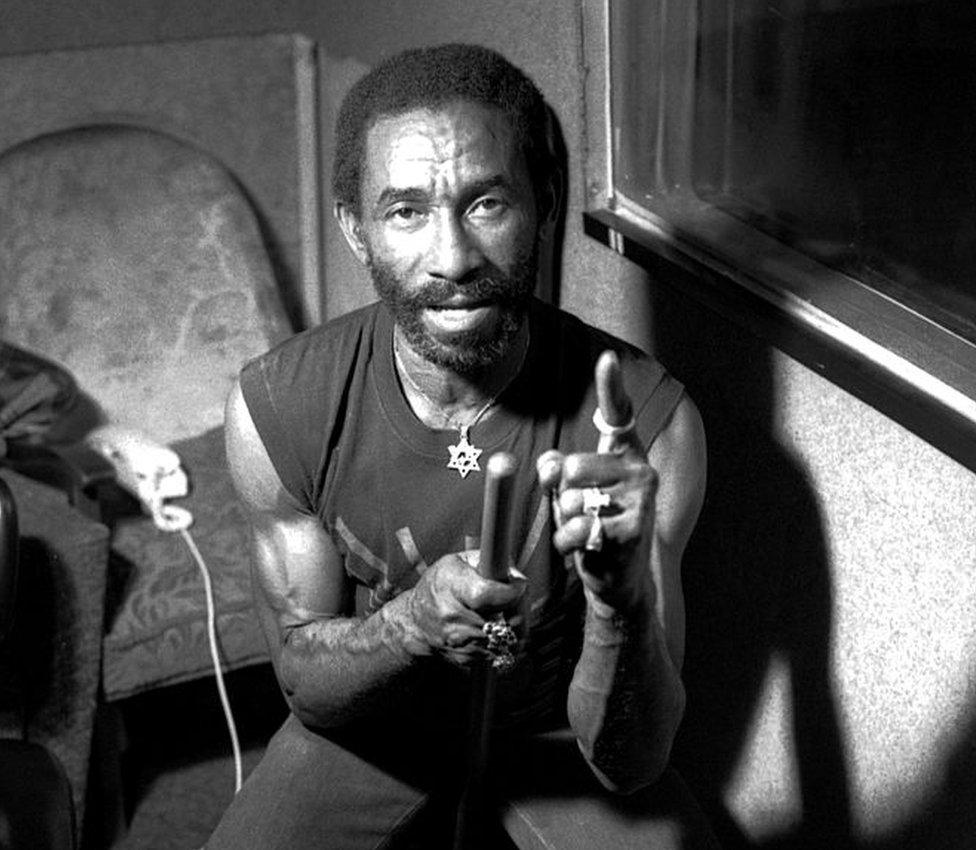
Perry, pictured in 1984, said everything he learned had "come from nature"
He also won a Grammy in 2002, was nominated four other times - in 2007, 2008, 2010 and 2014 - and received a Jamaican national honour, the Order of Distinction.
In a 2010 interview with Rolling Stone, Keith Richards described Perry as "the Salvador Dali of music".
"He's a mystery. The world is his instrument. You just have to listen," Richards said. "More than a producer, he knows how to inspire the artist's soul."
Electronic group The Prodigy shared a photo of Perry on Twitter showing him at a mixing desk.
Allow X content?
This article contains content provided by X. We ask for your permission before anything is loaded, as they may be using cookies and other technologies. You may want to read X’s cookie policy, external and privacy policy, external before accepting. To view this content choose ‘accept and continue’.

"RIP to the King", wrote British rapper Ghostpoet.
Allow X content?
This article contains content provided by X. We ask for your permission before anything is loaded, as they may be using cookies and other technologies. You may want to read X’s cookie policy, external and privacy policy, external before accepting. To view this content choose ‘accept and continue’.

American indie rock group the The Mountain Goats said there were "few more important figures in the music of the 20th Century" than Perry.
Allow X content?
This article contains content provided by X. We ask for your permission before anything is loaded, as they may be using cookies and other technologies. You may want to read X’s cookie policy, external and privacy policy, external before accepting. To view this content choose ‘accept and continue’.


If Bob Marley was the face and voice of reggae, Lee "Scratch" Perry was its soul.
He was a towering figure despite his diminutive stature and eccentric appearance, but his influence was much deeper than most reggae fans realise. Much like Nile Rodgers, he was the producer and brains behind many songs more famously sung by other people.
And it was his spirit that converted Marley's band - The Wailers - from a rocksteady and ska trio to a much more bass-fuelled, political and spiritual group, a process later accelerated by Chris Blackwell.
Shamanistic and reliably stoned, "Scratch" nevertheless had a remarkable work ethic. He fell out with many of his collaborators, including the great Studio One boss Coxsone Dodd, and indeed The Wailers, though he and Marley would later reconcile.
But by coming to the height of his powers in late 1960s and 1970s Jamaica, he was a charismatic engineer and catalyst for the group of artists who produced much of the best music of the 20th Century.
- Published24 August 2021
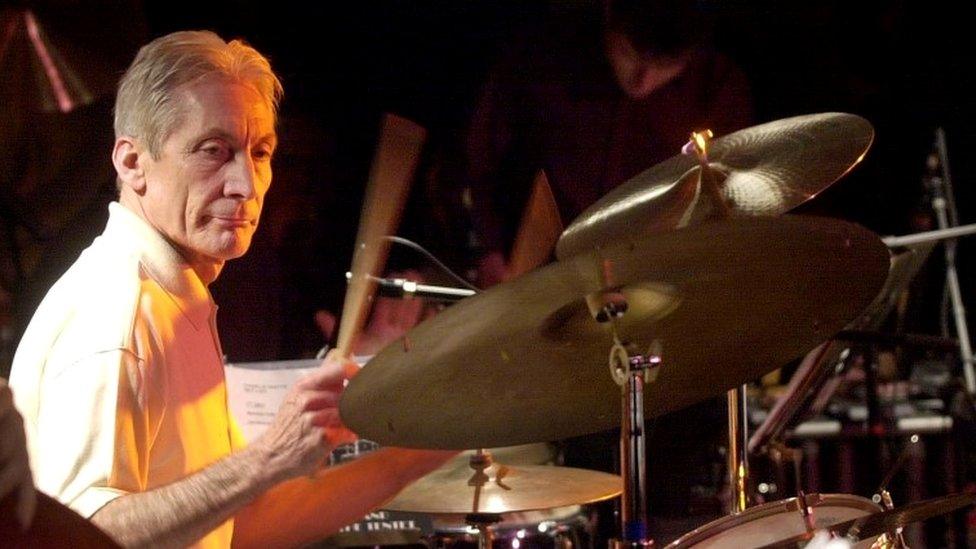
- Published29 July 2021
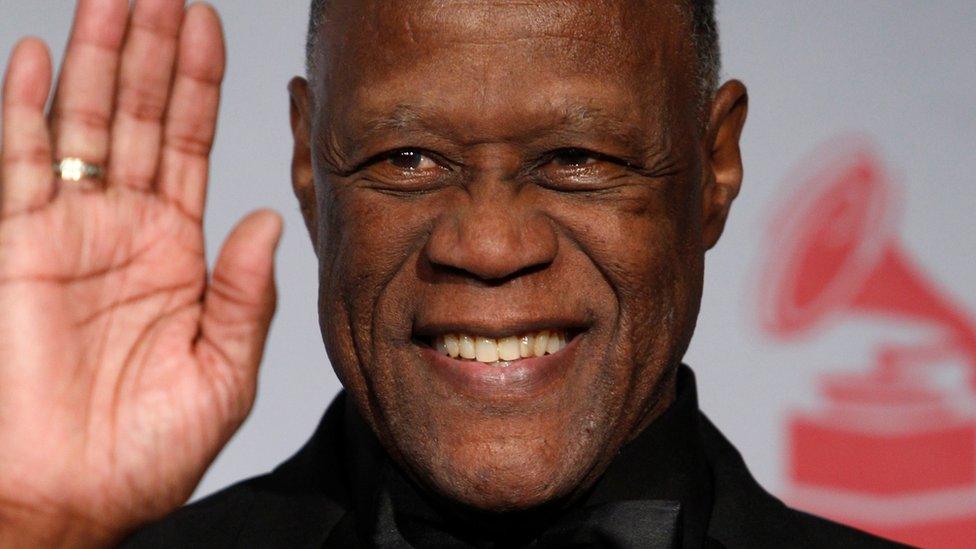
- Published9 April 2021
